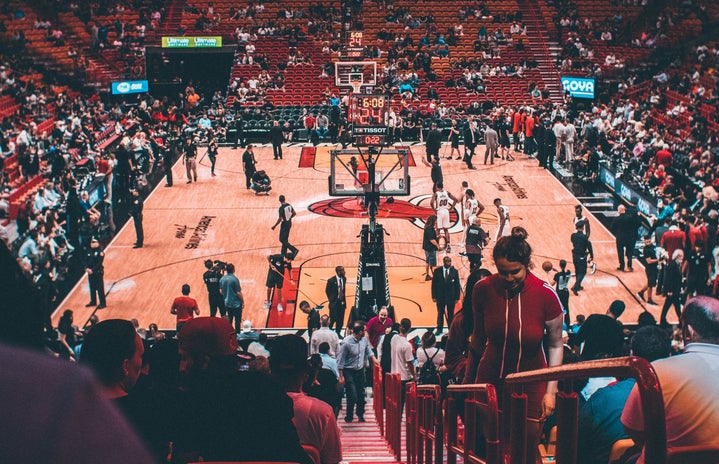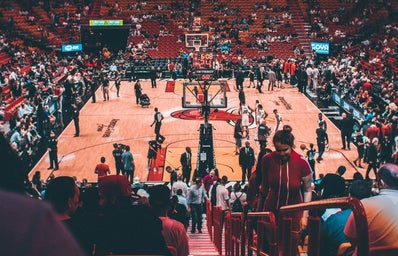I recently came across a video of Chris Brown performing in front of a surprisingly large audience. I did a quick Google search and discovered that he’s on tour right now. Not only have I never thought about that man since hearing the infamous report detailing what he did to Rihanna, but I assumed most people would never even consider watching him perform or listen to his music ever again. I went back and checked the comment section on the video and was surprised to see nearly zero comments sharing my opinion. Instead, it was person after person sharing how badly they want him to perform at the next Superbowl Halftime show. Some would say how unfair it was that he would likely never get chosen because of a mistake he made years ago. Many of these comments were from women. I truly don’t think any social media post has ever shocked me so much. Why are people not only paying to see him live, but justifying what he’s done and finding it unfair that he would miss out on performing in the Superbowl because he beat his partner within an inch of her life? Apparently some people view domestic violence as a simple mistake rather than an evil decision people choose to make to exert control over their partner and instill fear.
For those who don’t know exactly what Chris Brown did, you can find the police report here. Warning: the police report is an incredibly graphic description of the physical assault Rihanna went through. It’s surprising that something like this can be done to Rihanna, one of the most beloved artists of our time, and the perpetrator still gets to not only live a life outside of prison, but in the public eye. The implications of this are scary for less famous women who go through the same thing. If we can forgive a man who beat one of the most famous R&B artists of the 2000s, how much can we suck up to a guy who beats his non-famous wife with less resources, less media coverage, and less people she can turn to in a time of crisis?
Seeing this reminded me of the NBA player, Miles Bridges, who got suspended for 30 games after turning himself in for felony domestic violence. He strangled his wife until she passed out in front of their two children, breaking multiple bones. He didn’t contest the charge and ended up having to go to court-mandated therapy for a year. No prison time. The NBA decided that the most fitting punishment for him would be a 30 game suspension, but they counted the year he was in therapy as 20, so he only really had to miss 10 games. Shortly after, however, he got arrested again, this time for throwing billiard balls at a car his kids were in. This time, the NBA did nothing. The next game he played, not only was he not booed off the court, he was met with a standing ovation from the crowd.
Why are abusive men celebrated instead of jailed? Why do their fan bases grow after domestic violence charges? Part of the blame falls on associations like the NFL and NBA who let athletes convicted of domestic violence continue to play, especially with very lenient punishments, like the 10 game suspension given to Bridges. The NFL is notorious for a domestic violence problem, and it’s partially because of how often they let these abusers get away with it with little to no repercussions. USA Today collected a database of NFL arrests three years ago and found that 134 NFL players have been arrested on domestic violence charges since 2000. Another report found that the average suspension for domestic violence in the NFL is 2.3 games. The NBA has a very similar problem. NBA players are found to have a domestic violence rate 38.2% higher than the general population, while NFL players have a rate 55.4% higher. The NBA’s domestic violence policy is that once a player has been convicted, they are subject to a minimum suspension of 10 games. Miles Bridges’ suspension would have been the longest one yet for a domestic violence charge in the NBA, but since they only ended up suspending him for 10, it becomes obvious that they wanted to give him the lowest number possible, and only began with 30 to placate any public concern. I can only imagine what his punishment would have looked like if that policy was not put in place.
It gets a bit more confusing in the music industry. There is no large association to blame if a musician gets in trouble with the law and continues to release music. It’s on the audience to decide whether or not they will continue to listen. So why do artists like Chris Brown still have an audience? In a 2005 study about the public perception of domestic violence, 37.5% of those surveyed believed that what is often labeled as domestic violence is a typical reaction to stress and frustration. 23% believed that some victims of domestic violence secretly want it. 63.1% believed that if a woman really wanted to, she could usually leave the abusive relationship. The study concluded that a large majority of respondents severely underestimated how hard it often is to escape an abusive relationship. A large majority also blamed substance abuse as the biggest factor in domestic violence, rather than a controlling or narcissistic personality or gender inequality. Seeing how many people have misconceptions about domestic violence is eye-opening. Too many people are willing to blame the victim, whether by accusing them of secretly enjoying it or blaming them for not leaving sooner. This perception of domestic violence makes it incredibly easy to reassign guilt away from your favorite artist, so you can continue to listen to them guilt-free. I argued with several people under that video of Chris Brown who held the stance that it was Rihanna’s fault because she slapped him on the arm, as if that now warrants a beating so brutal that when she successfully got other people’s attention, Brown got out of the car and fled the scene.
Unfortunately, I could write a thousand paragraphs naming every athlete or artist who has gotten away with gruesome domestic abuse. The NBA and the NFL need to change their rules surrounding domestic violence charges immediately. a minimum 10 game suspension is ridiculous. And the average 2.3 game suspension in the NFL is abhorrent. Athletes are going to continue to hurt their partners because they know they can do so and immediately return to their jobs where they make millions of dollars a year. And more people need to realize that it is never a victim’s fault when they’re in an abusive relationship. We need to learn to stop blaming drugs or alcohol and start blaming the people that enjoy humiliating, controlling, and instilling fear in their partner. There is no excuse for domestic violence. It is never, ever, warranted.
If you or a loved one needs help, the National Domestic Violence Hotline is 800-799-7233.


